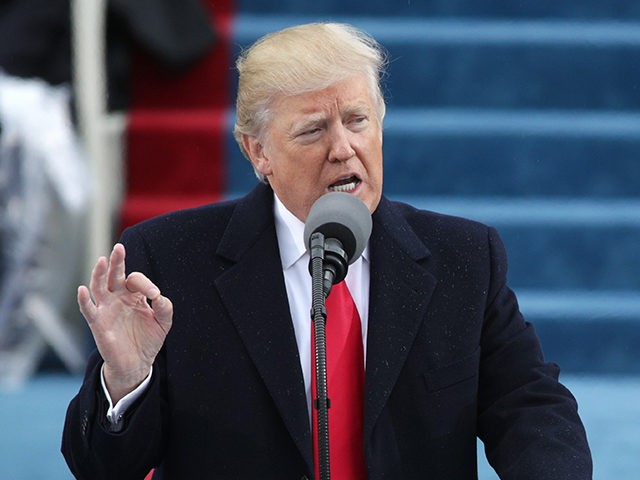The Associated Press reports that Iran is being “cautious in its first comments on U.S. President Donald Trump.”
Iranian Foreign Ministry spokesman Bahram Ghasemi delivered Iran’s first official comment on Trump since Inauguration Day. He said it was “too soon to assess him and analyze his remarks, stance and the framework of his viewpoints.”
However, CBC News points out Ghasemi was not actually the first high-ranking Iranian official to weigh in after the Trump inauguration. That would be Atomic Energy chief Ali Akbar Salehi, who is also one of Iran’s vice presidents.
On Saturday, Salehi told CBC News he viewed the lack of comments about Iran in Trump’s inaugural address as a “positive” sign, but he dismissed the Trump administration’s promise to develop an improved missile shield against Iranian and North Korean threats as a “politicized” announcement that was “against all rationality.”
Salehi then said Iran could quickly “snap back” to “not only … where we were, but a much higher position technologically speaking,” if it decides Trump has violated Barack Obama’s nuclear deal. The Obama administration insisted no such snap-back by Iran was possible.
The Washington Post theorizes that Iran is waiting patiently for Russia to finish muscling the United States out of the Middle East, which will also weaken the position of Iran’s chief competitor for regional leadership, Saudi Arabia. Iran is not only a player in Syria, but also the most influential presence in Iraq after eight years of Obama policy, while Russia is not only sewing up an alliance with Turkey, but making moves on Egypt and Libya.
“Iran has more reason to fear the tough anti-Iranian rhetoric that has emanated both from Trump and his foreign policy nominees. But any attempt to push back against Iran would contradict the goals of allying more closely with Russia and Syria — which are, at least nominally, allied with Iran — and also run the risk of confrontation,” the Post observes.
Iran has every reason to avoid provoking Trump, which means the Saudis and their coalition partners will encourage the new President to curb Iran’s growing influence.
“Perception is important: Trump does not look like the kind of guy who will bend towards Iran or anyone else,” Saudi commentator Abdulrahman al-Rashed told Reuters. “If he behaves as he says, then we will see another Ronald Reagan, someone all the forces in the region will take seriously. That’s what we have missed in the past eight years, unfortunately.”
Reuters quotes several Gulf Arab sources, who say they are less interested in Trump repudiating the Iran nuclear deal than in seeing him take action against Iran’s political and subversive influence. They are also nervous about the situation between Israel and the Palestinians taking a turn for the worse and about “polarizing language” that could be seen as “demonizing Muslims.”

COMMENTS
Please let us know if you're having issues with commenting.